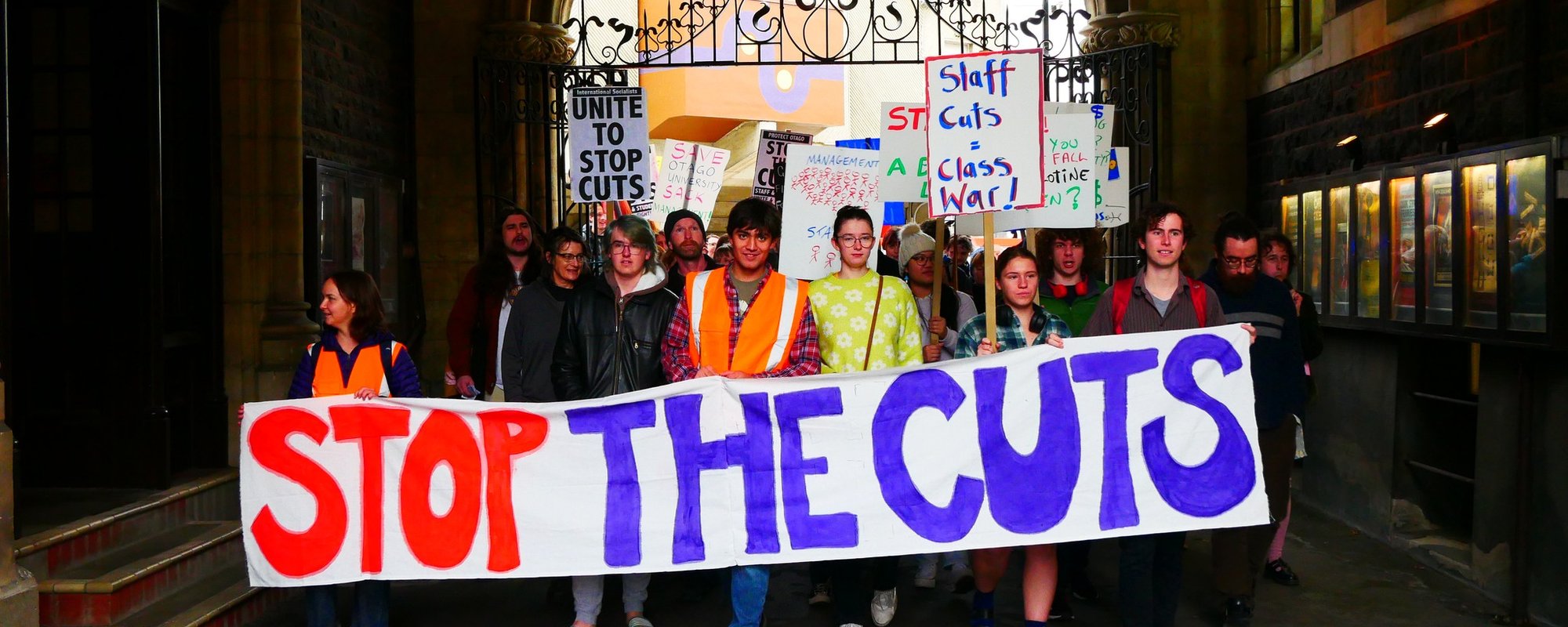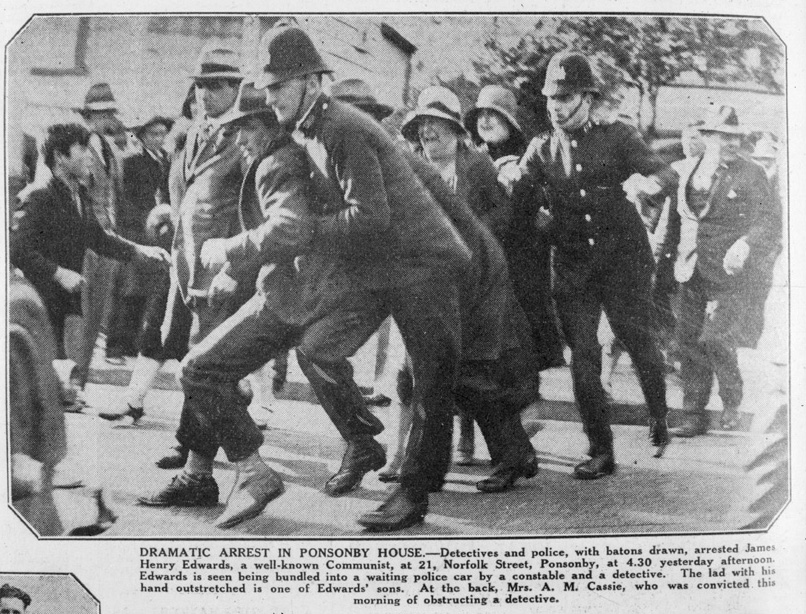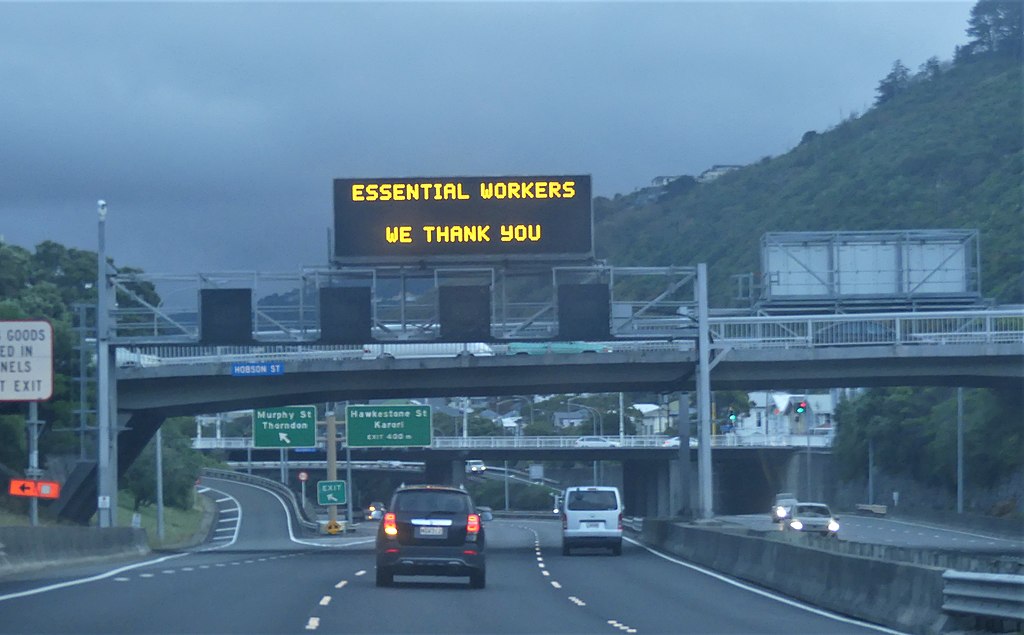Replacing Simon Bridges with Todd Muller is a piece of shuffling by the National Party caucus, and is more to do with style than substance. There is little that distinguishes the two men politically and, as Paul Goldsmith’s garbled responses to questions on Budget night around what he would have done differently to Grant Robertson show, little that is distinctive about National’s current programmatic approach. Their line – amplified by Muller’s quip that there were ‘seventeen empty chairs’ behind Jacinda Ardern and Robertson – is best summarized that they are the natural party of government, are more competent than Labour, and never should have been out of government in the first place. After the three years we have had – and Ardern’s commanding leadership after the Christchurch attacks, the Whakaari/White Island eruption, and the COVID-19 pandemic – it is likely to soon sound as shaky from Muller as it did from Bridges.
It would be foolish to write confidently about any outcomes in politics just now. The world is in a state of turmoil, a global recession on a massive scale is underway, and everything is in flux. The wheeling and dealing of mainstream politics is complicated for both major parties: National cannot realistically hope to govern without continuing to give life to ACT, a zombie party, while Labour relies, numerically and by ideological temperament, on New Zealand First, a party with an uncertain future. The last two polls notwithstanding, National has enjoyed unusually sustained support throughout its first term in opposition. Who knows what will come next? But Muller’s election reveals some of the party’s deeper strategic dilemmas.
Mainstream political reporting focuses on tactics above everything else: who will have the numbers to govern? What lines will resonate with voters? How will deals be done? But political parties do not exist just to win votes. They also need to shape politics to suit the needs of New Zealand capitalism, and to govern in ways that deliver for capitalism. This involves negotiating between managing (and generating) voters’ expectations, responding to the demands of the ruling class and, crucially, providing ideological accounts for ruling in the interests of capital that convince enough of the population that this is in their own interests, too.
National has, since its formation, been the dominant and preferred party for this role in New Zealand politics. As its name makes clear, the party presents rule for big business, capitalist farmers and capitalism generally as in the ‘national’ interest, transcending local claims. Most of the time this has worked well enough, and National has ruled for 56 out of the last 70 years. The party is the party of open capitalist rule in parliament, without Labour’s ties to the union movement, and Todd Muller fits this pattern. Media profiles have depicted him as part of the party’s ‘rural’ base, but his background is not farm labouring or shearing. Muller’s time as Chief Executive of Apata, General Manager at Zespri, and a senior manager at Fonterra connect him into the network of figures running New Zealand capitalism. He is part of ‘the 1%’.
Presenting ruling for capital as ruling in the ‘national’ interest runs ideology up against reality, however, and, after periods when its rule has involved pushing sustained attacks on the working class, National’s pro-business nature has cost it electorally. The viciousness of the reforms under the Bolger and Shipley governments in the 1990s left National widely despised, and it took sustained work through the 2000s for John Key to shed the party of its image as the ‘nasty’ party of racists and reactionaries. Coalition with the Māori Party was crucial to this, as was Key’s own carefully-cultivated image as an everyman working beyond politics.
Again, Muller fits the pattern here. He worked for Jim Bolger in the 1990s, and his maiden speech to Parliament in 2014 was careful to acknowledge his place in a longer line of National figures. He also crafted himself as a politician in the Key line, opening his speech in te reo Māori and acknowledging tangata whenua in his electorate. All a far cry from the ‘one New Zealand’ racial politics of Don Brash.
But this points to National’s strategic dilemma. The great Italian revolutionary Antonio Gramsci used the term ‘historical bloc’ to describe the ways in which the dominant class needs to fuse competing political forces into a stable ruling order. Different ideas and programmes compete in social groups, Gramsci saw, and there is not a social group formed ‘which is one hundred per cent homogenous on the level of ideology’. Instead, ‘the complex, contradictory and discordant ensemble of the superstructures is the reflection of the ensemble of the social relations of production’. All the talk of National being a ‘broad church’ or of bringing together ‘urban liberals’ and ‘rural conservatives’ reflects, in a superficial way, this reality. The party, when successful, brings together parts of the ruling class with competing interests (capitalist farming, export industries and local manufacturing, say) alongside middle-class professionals (the ‘urban liberals’ of Remuera and Epsom’s doctors, accountants and lawyers) to create a way of ruling that can present itself as common sense. National is at its most ideological, in other words, when it can claim to be without ideology. Again, Muller fits the pattern.
And here is the problem for National. Any effective ‘historical bloc’ successfully ruling for New Zealand capitalism now needs to recognize, and somehow try to incorporate, the reality of Māori political and social claims, and the widespread recognition of their legitimacy. Decades of Māori resistance has forced state recognition of some basic rights, notwithstanding how much needs still to be won. Māori urbanization and involvement in working-class struggle since 1945 has changed New Zealand society permanently. Don Brash, despite being given every possible opportunity to air his ignorant views by the mainstream media, remains, thankfully, a marginal figure. Migration, women’s involvement in the workforce, and the long-term cultural changes brought on by liberation struggles have all transformed New Zealand. Key’s project, and his success, was to do with making National reflect this social change and use it to better rule in the interests of profit and business.
What passions motivate politics, though? If Key’s project made good sense from the point of view of capitalism, it partially broke with some of the ideological passions that have sustained National’s activists over many years: law and order, race and racism, socially-conservative dreams of so-called family values and reactionary hostility to liberality. Marrying the ‘cold’ needs of business to the ‘hot’ imagined needs of voter bases is one of the jobs of politics. As Gramsci put it, ‘the popular element “feels” but does not always know or understand; the intellectual element “knows” but does not always understand and in particular does not always feel.’ One cannot, Gramsci went on, ‘make politics-history without this passion, without this sentimental connection between intellectuals and people-nation.’ Facilitating and promoting New Zealand capitalism is National’s primary task, but that is not the kind of thing that gets a retired accountant or a busy project manager out of bed to spend a Saturday doorknocking or stuffing leaflets in suburban letterboxes. It takes, in Gramsci’s words, ‘an organic cohesion in which feeling-passion becomes understanding’ for that to happen and, in ruling-class parties historically, that has been provided by nationalism, ‘family values’ and reactionary conservative social fears.
A glance around the corporate floats at any Pride Parade – or a look over social attitude surveys – shows that this kind of reactionary conservatism, just like Brash’s anti-Māori racism, is out of step with both the ideological priorities of the capitalist class or the broad values of most of the population. Ardern’s marital status, for example, has (quite rightly) been a non-issue for the electorate, occasional cranky letters to the editor by busybodies aside; Marriage Equality generated none of the backlash talked up in 2013 and religious parties have been a non-starter. It is not to minimize the real prejudices and oppressions that still exist to point out that, broadly, liberal reforms have fitted wider shifts in social attitudes around gender equality and identity, sexual identity, bodily autonomy, and the right to human dignity.
For National’s ‘intellectuals’, however – its MPs, activists, organisers – so-called ‘values’ issues have the motivating force of political ‘passions’. A majority of National MPs (35 vs. 19) voted against abortion law reform, whereas a majority of Labour MPs supported change. In 2013 a majority of National MPs opposed marriage equality (32 against vs. 27 for); again, a majority of Labour MPs backed equality. A core of senior National figures (Simon Bridges, Gerry Brownlee, Michael Woodhouse, for example) consistently vote in socially reactionary ways. Alfred Ngaro, when founding the NZ-Israel Parliamentary Friendship group, described the ‘Messianic’ part of his faith as one reason for his fervent support for Israel. Conservative Christian factions in the caucus, Richard Harman and Gordon Campbell have both noted, wanted the party to come out against the government’s strong response to COVID-19 and are, like much of the party’s base, skeptical towards climate change science, let alone anything like effective climate change policies.
This is the strategic dilemma. The kinds of issues that will motivate campaigners and cohere a strong party vision – climate change denialism, reactionary scare campaigns on gender identity and trans rights, anti-Māori fear-mongering – are also repulsive to large swathes of the middle class and business currently, let alone the layers of workers National needs to appeal to in order to win. Simon Bridges’ attempts to stir up anti-Māori feeling around the land protectors at Ihumātao never came to much. There are some very odd figures rattling about in any possible reactionary coalition that could be built from these passions: Simon O’Connor, a National MP who regularly rails against the left in his electorate newsletters, ended a speech on abortion by saying ‘vengance is mine, saith the Lord’ in Latin; the gaggle of Pākehā trespassers holding up environmental protection at Ōwairaka have given bizarre interviews claiming to be mana whenua; the pro-gun lobbyists and free-speech crusaders circling around in the last year blur uneasily into the Islamophobic online far right. The famous surge in the polls that came from Don Brash’s speech at Orewa obscures the fact that, from there, Brash’s ‘one law’ rhetoric kept the party from power. Key had to break from each of his predecessor’s rhetorical positions before he could get his economic programme underway.
The intense hatred of Ardern expressed by so many around National’s fringes is a good example of the dilemma playing out in a small way. Its patronizing chauvinism – as with Duncan Garner’s childishly petulant and sexist attempts to goad the Prime Minister in interviews – would always be offensive but, in addition, every time a right-wing figure speaks of ‘Cindy’s Kindy’ (as former National Party President Michelle Boag did) or otherwise denigrate Ardern they only draw up a contrast between her intelligence and political smarts and the National front bench. That comparison does not work in National’s favour, however much the resentment might nourish party believers.
So: a party with reactionary ‘passions’ to energize its organized supporters, at the cost of winning wider purchase as the natural, common-sense party of government? Or a ‘passionless’ technocratic appeal to voters to remember its natural right to govern as the party of economic competence? The former option builds the party’s organisation while threatening its vote and naturalized ideological status as the party of government. The latter keeps this stability at the risk of not providing the drives needed to motivate any real campaigning. Muller, like Bridges before him, is likely to shuffle between the two options. It is a strategic dilemma, not just a question of tactical choices.
National is nowhere near the turmoil and churn that characterizes the British Tories, the Republicans in the US or, until recently, Australia’s Liberals, and New Zealand politics has had none of the drama of these other advanced capitalist societies. But, in a long-term view, National faces the same problems of ‘ruling the void’, as the participatory opportunities in Western democracy – parties, democratic control over resources, mass organisations – have withered through the technocratic reign of neoliberalism.
What does all of this mean for those of us on the left? National’s fortunes look to be no better under Muller than Bridges, but what is generated in the realm of electoral politics need not stay there. Ugly strains of racism, widened space for Islamophobia or ‘culture wars’ battles over gender may prove unhelpful in official politics, but, if aired, they will give confidence to those even further right. This will do real damage in real lives, and extra-parliamentary campaigning and solidarity remains essential.
Enormous pressure is likely to come, from Labour loyalists and the upper reaches of the union bureaucracy, to mute our criticisms of the coalition in the lead up to the election. After all, who would have preferred a Bridges government managing the pandemic to an Ardern one? But the Budget’s limits – no increase for unemployed workers, nothing adequate addressing climate change – show how urgent it is to build movements raising demands for workers, students, the unemployed and oppressed more generally in the here-and-now, regardless of who is in power. Waving the spectre of a Muller government to have the left fall in line behind Ardern will not advance those demands.
As unemployment rises and the human miseries of the recession affect more of our lives politics is likely to become more polarized, more bitter, and more unstable. This will provide openings for both the left and the right. If Muller’s leadership is unlikely to solve National’s strategic dilemmas in the short term, volatility abroad – who expected a Trump victory in 2016? – should warn us against complacency. The sparks thrown up from struggles within the National party over the party’s direction, its cultural politics, gender and sexuality, race and racism and their programme for offensives against the working class have the potential to strike waiting fuses outside their ranks as well. Nothing in the current moment tells us when, or how, that may happen. But understanding the choices facing our enemies matters for working out our own decisions.








